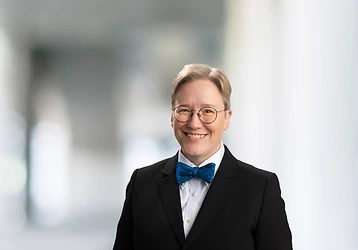No Time for Complacency
A little while ago, we issued an alert with regard to a Petition for Rulemaking filed by two “public interest” advocacy groups – Public Knowledge and the Open Technology Institute at New America (client-alert-detail/Public-Interest-Groups-Seek-to-Halt-Further-Deployment-of-Connected-Car-Technologies.html). The Petition requested that the FCC adopt several rules that would govern the Dedicated Short Range Communications (DSRC) service that is being deployed in support of connected car technologies and services. The Petition seeks (1) new FCC rules governing privacy and cybersecurity of DSRC services; (2) a prohibition on any services other than safety-of-life in the DSRC spectrum; and (3) a halt to any DSRC deployment until the new, proposed rules are adopted. The FCC put the Petition out for comment, and the comments and reply comments have come in.
Only three of the initial comments filed in that proceeding supported the Petition, and two of those were apparently written by Public Knowledge and the Open Technology Institute (and joined by several other “public interest” groups). The other support was a two-paragraph comment signed by “automobile safety” advocates. In contrast, a dozen companies or groups filed much more extensive comments opposing the petition for Rulemaking. Those comments pointed out the significant procedural and substantive flaws in the Petition. Nevertheless, the automobile industry should not become complacent.
Indeed, only three parties filed reply comments – the Intelligent Transportation Society of America, General Motors and Public Knowledge/Open Technology Institute. And unfortunately, Public Knowledge/Open Technology Institute used their reply comments to double down on audacity. A copy of their Reply Comments is here: https://ecfsapi.fcc.gov/file/10908067122404/DSRC%20Petition%20PN%20Replies%20FINAL.pdf They claimed wide support from consumer groups, ignored the extensive evidence of the privacy and cybersecurity measures “baked into” DSRC, asserted that the FCC has authority and expertise to regulate the auto industry, and mischaracterize the comments of the automotive industry and others. Moreover, they have been meeting with the personal staff of the Chairman of the FCC in ex parte meetings to press their case. Their summary of there is ex parte meeting is here: https://ecfsapi.fcc.gov/file/10906184156433/DSRC,%20Privacy,%20BDS%20Sohn%208-29-16.pdf
The Commissioners and their personal staff rarely read the record in any rulemaking proceeding. They are much more likely to be swayed by in person, ex parte meetings with a party. So absent such a “lobbying” effort by the automotive industry to counteract the lobbying being done by Public Knowledge/Open Technology Institute, the Commission might be inclined to move to the next stage and issue a Notice of Proposed Rulemaking, rather than dismissing the Public Knowledge/Open Technology Institute petition. Moreover, their lobbying on the Petition could also affect the FCC’s decision in the somewhat related proceeding with regard to sharing the DSRC with unlicensed users, because the Public Knowledge/Open Technology Institute petition is, in essence, a back-door attempt to choose the “Qualcomm proposal” to re-channelize the DSRC spectrum and provide priority only for “safety-of-life” transmissions in the upper 30 MHz of the 5850-2925 MHz band. The auto industry cannot afford to relax and assume it will prevail simply because it has created a great paper record in this petition for rulemaking proceeding. Additional effort could provide significant benefits for those within the industry. For more information on steps to take, please contact your Butzel attorney.
Stephen L. Goodman
goodman@butzel.com
202.454.2851











